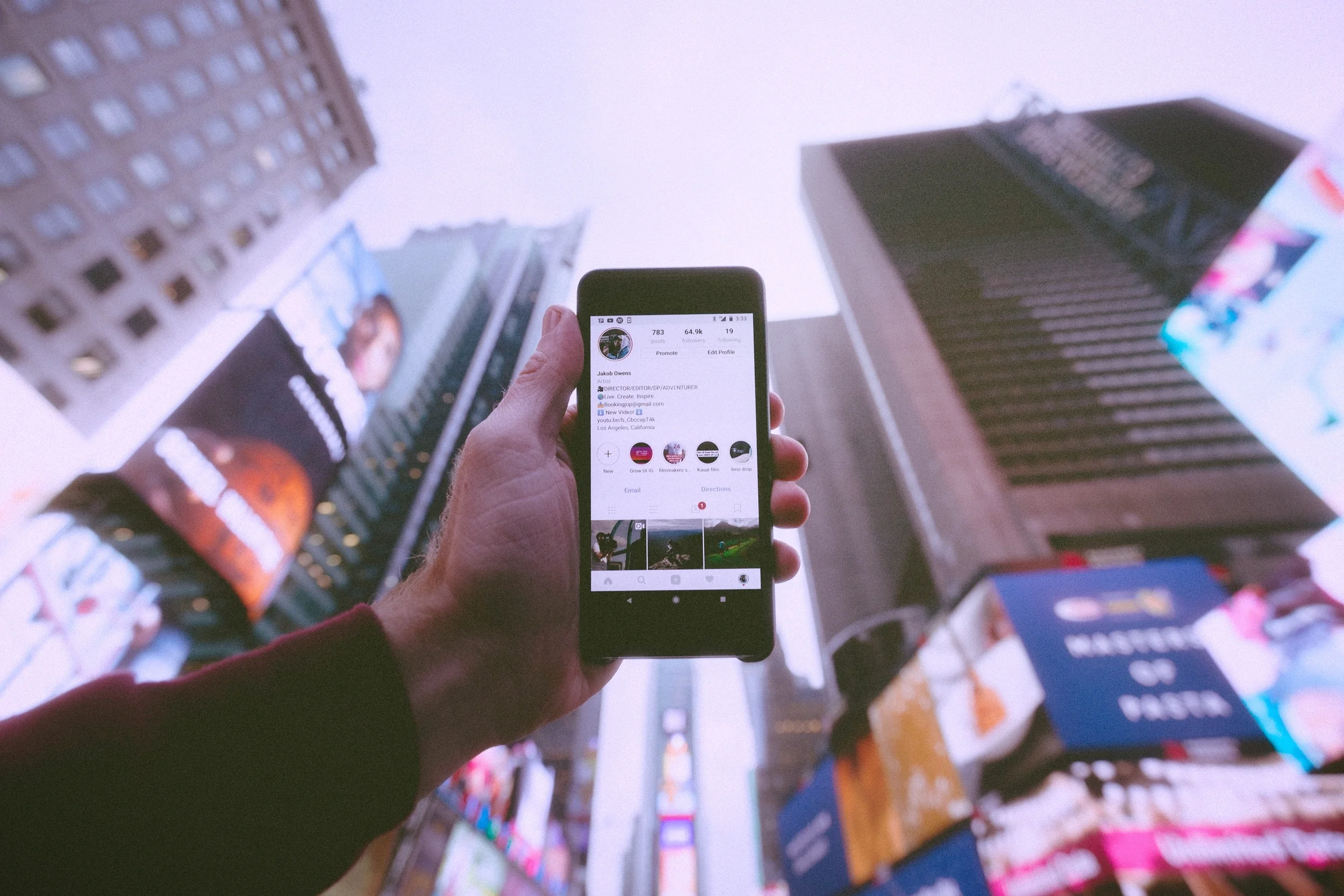Do you ever wonder how much time you spend on your phone? How many hours are consumed by the constant time check, message update, email blast, song change...? Reality is, these small, sometimes subconscious phone habits add up quickly without us even realizing it.
Researchers exploring mobile phone use suggest that humans spend roughly one-third of waking hours on mobile devices. We use our phones roughly twice as long as we think we do because we don’t even process that we do it. In fact, we are using our phones now more than ever. An analytics firm, Flurry, released 2017 mobile user data which found that U.S. phone users spend an average of 5 hours on mobile devices daily, consumed in apps like Facebook, news, shopping, and other media platforms. This finding marks a 20% increase in daily phone use since 2015.
Truth is, mobile phones have become our portals into the world we live in. It’s how we stay connected, find jobs, maintain relationships, keep informed, on schedule and on time. We rely on our phones to gain quick access to the information we need to successfully navigate our day. A mobile phone is a necessity in today’s lifestyle.
Recognizing this, it’s important that we as individuals become more mindful of the time we spend on our phones, and most importantly, the messages we receive and how these messages impact our mood, confidence, and overall health.
Mood
Humans are emotional beings and research finds that emotion spreads fast. The University of California explored emotional contagion on social media by assessing over a billion status updates. Their research suggests that a good or bad mood can spread between people on social media, and can affect the mood of readers and the emotional content of others’ posts.
Consequently, it is critical that we as media consumers are tuned in to our own mood when browsing social media. While a post of an adorable dog may lift our spirit, a reported act of violence may deplete our energy. These emotional swings, if not monitored, can distract us from achieving our personal goals. It is important to engage in frequent ‘mood checks’ while browsing media on our phones, to remain in control of how the messages we receive impact our emotions and our daily functioning.
Confidence
Social connections are an important part of life. They can make us feel loved, appreciated, and successful. But, they can also hurt our wellbeing if not monitored appropriately. On social media, it’s important to recognize that the friend connections we make, and the images, messages, and achievements posted, are constant representations of the best: best achievement, best picture, best outfit, best self.
Yet, research suggests that we viewers forget this. It is reported that social media sites make more than half of users feel inadequate and/or unattractive. It is easy to get so consumed in the accomplishments posted by others that we begin to question our own success and worth.
With so much time spent on our phones, it is critical that we protect our confidence. We must not measure our worth based on others. And, we must remember that what’s posted is one’s best self, which must not be confused with one’s daily success rate. We all have great triumphs and challenges. Don’t let yourself fall victim to a confidence crisis caused by social media overload.
Health
Increased phone time also heightens health concerns. For example, lengthy phone time increases one’s exposure to artificial blue lighting. This screen lighting has been found to reduce the body’s production of the hormone melatonin, key in restful sleep behavior. Sleep is critical to repair and maintain a healthy mind and body, making increased phone time worrisome.
Additionally, many people use social media as a place to vent concerns or problems. Social media platforms can at times put forth endless streams of anger and stress, with sad messages constantly popping-up on phone screens. Constant exposure to these messages, if not monitored, may cause users to internalize undue turmoil. For instance, a study conducted involving 1,700 people found that people who used more social media platforms, had a threefold risk of depression and anxiety based on increased exposure to cyber bullying and distorted views.
It is important to be aware of both the physical and mental drawbacks of increased media usage, to proactively protect against harmful consequences.
With a better understanding of the role phone time plays in our daily lives, and how this time impacts our mood, confidence, and health, you are hopefully better equipped to protect yourself. Reality is, phone time will most likely continue to rise. So, now more than ever, it is important that we as individuals take an active role in protecting ourselves against the downfalls of increased phone use and media exposure.
Positive Practice
Estimate how much time you spend on your phone. Now, double it. That’s proven more accurate. Brainstorm ways to reduce this time...
Before you open your Facebook app (or other social media/news platforms), reflect on your current mood. How do you feel? After browsing, take notice of your mood once again. Do you perceive any changes? This is the first step in building the skill of ‘mood checks.’
To learn more on this topic, check out these reads:
Social Media Makes Us Feel Jealous, Ugly And Lonely Say Scientists
U.S. consumers now spend 5 hours per day on mobile devices
